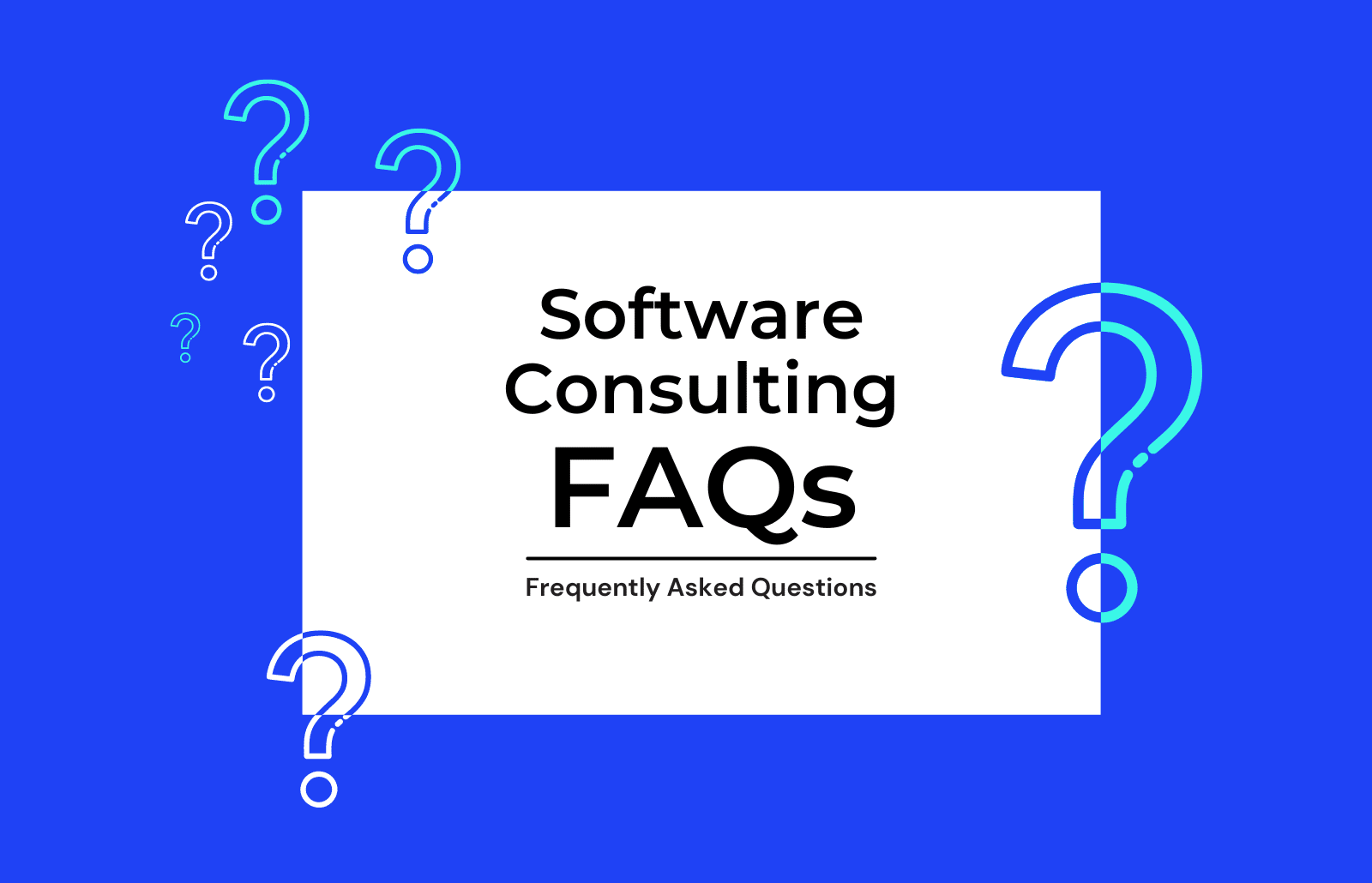Technology consulting as a term seems to be self-explanatory, however, when you consider that each consulting project is unique to the situation at hand, you realize that there is a lot to be figured out before kick-off.
Discover the basic concepts within software consulting, as well as the most frequently asked questions by prospective clients at Zartis.
1- What is software consulting?
Software consulting is a B2B service focused on providing tailored solutions to clients’ problems in the technology sector. With the expertise and know-how of experienced software development consultants, companies can get help in any area of their business related to software development and IT.
2- What does a software consultant do?
Software consultants can analyze a business as a whole and offer solutions with the most significant impact to improve internal or external processes and achieve better results. Services can range from analyzing existing processes, designing solutions to address bottlenecks, and bridging the skills gap to actually implementing these solutions.
3- What are some of the typical software consulting services?
From design to development and integration, companies can request an endless array of services. Whether it be to discover new ways of building software and plan properly, or to modernize or update existing software solutions to drive better results; what you can request is only limited by what you need.
At Zartis, we provide consulting services in the areas of software architecture, infrastructure, process optimization, and modernizing legacy applications. Some examples of projects we have been involved in include creating MVPs for entirely new products, optimizing existing systems and processes for scalability, and re-engineering legacy systems to bring them into the new world.
4- How to choose a software consulting firm?
Ultimately, the choice of which technology consulting firm to partner with comes down to technological and cultural fit. On the technology side – a good fit in most cases would be a provider who has experience in what you’re working in and understands the challenges of your domain. On the cultural side – a partner should share your values when it comes to how to work with engineers, and run an open and transparent collaboration.
5- What is the typical pricing model for consulting services?
If you are planning on hiring consulting services, the two most common pricing models in software outsourcing are: time-and-materials vs. fixed-price contracts.
What Is a Fixed-Price Contract?
A fixed-price contract is an example of project-based outsourcing, which is widely used in traditional offshoring. This pricing framework is a type of billing where the customer and service provider agree on a firm price for the entire project in advance. Any extra work and additional costs that are not covered by the original agreement are paid separately.
What Is a Time-and-Materials Contract?
The phrase refers to the time (as in actual hours and days) and materials an outsourcing vendor spends on a given project. This includes the work done by the developers, QA consultants, as well as, if applicable – the product owner, architect, and everyone else on the dedicated development team.
At Zartis, we work on a time and material model with daily rates. Clients pay for the time our experts dedicate to your needs. Depending on your needs and requirements, we can set up the consulting collaboration on an ongoing part-time basis or as a shorter, fixed-term consult. We can provide a rough estimate as to the amount of time and resources we foresee your requirements will take.
6- What are the benefits of using software consulting services?
Software consulting services aren’t on the rise for no reason. There are many possible reasons why a company may require such services:
-
- Accessing expertise on a topic: The first and most obvious reason why someone would opt in for consulting services is that they lack the knowledge on a specific topic to enable them to succeed.
- Get an unbiased analysis: When your team is deeply invested in a product and making it work, it may be easier to miss the bigger picture. Many companies rely on outside experts to test and evaluate their systems to give an unbiased perspective.
- Process optimization: If you want to change how you do things but don’t know how, a software consulting company can help introduce new processes or optimize existing ones. We helped clients optimize their agile cycles, release processes, QA, and testing strategies, as well as restructuring their engineering teams to solve bottlenecks during the collaboration.
- Get help with the initial design: During the initial stages of your SDLC, it might be useful to get an expert opinion on what the architecture and infrastructure should look like. This initial investment can save you a lot, especially if you realize that you need to make huge changes in your system down the road.
- Build an MVP or PoC: Before hiring and deploying an entire team, it might be wise to have software experts build an MVP or proof of concept so that you can test your idea with lower barriers to entry.
Software Consulting at Zartis
Zartis ranks among the top software development consulting firms providing high-quality software solutions and experiences across UX, Frontend, Backend Development, DevOps, Data Science & Engineering, Quality Assurance, Mobile Development, and more.
Whether through further consulting and coaching the internal team, or delivering additional resources to implement your plans, we got your back. Get expert advice now!


